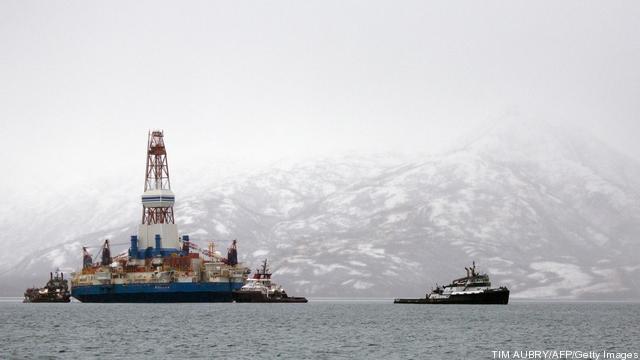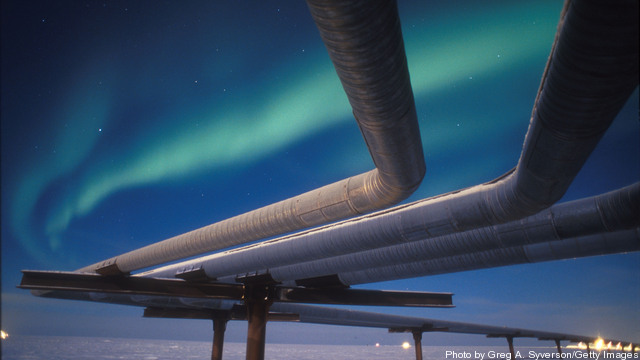Rex Tillerson, CEO of ExxonMobil recently met separately with Iraqi Prime Minister Nuri al-Maliki and Kurdistan Regional Government Prime Minister Masoud Barzani to discuss the company’s provocative stance within Iraq’s critical oil and gas sector. Exxon is simultaneously famous for its “my way or the highway” approach and for shying away from the internal politics of sovereign nations where it operates, so these high-profile meetings create many questions about the future of Iraq’s oil and gas development framework.
The disagreement and distrust between Baghdad and the KRG has gone on since the former regime fell in 2003, with the two sides unable to reach an agreement on oil revenue sharing, contractual terms with foreign oil companies, export routes and other issues.
Most of Iraq’s developed fields and export infrastructure is located in the south, but the Kurdish regional area in the north contains considerable undeveloped reserves and its border with Turkey offers additional export routes to European and western markets.
Baghdad has barred companies that sign contracts with the KRG from operating in the south, but ExxonMobil – having already established itself in one of the most prolific southern fields, West Qurna-1 – also signed production sharing contacts with the KRG in 2011. This infuriated the central government and Oil Ministry who barred Exxon from future licensing rounds and demanded the company sell its West Qurna-1 stake. Exxon has reportedly spoken to potential buyers.
In 2009 and 2010, Exxon – along with partner Shell – agreed to increase West Qurna-1 output from about 250,000 b/d to 2.825 million b/d within 7 years. “Initial field production of 244,000 barrels per day has now increased to 285,000 barrels per day, which exceeds the 10 percent improved production target established under the technical services contract,” Exxon said in a 2011 statement. The service contract terms provide the companies a $1.90/bbl remuneration fee for incremental output from developed formations and a $2.00/bbl fee from nearby discovered, undeveloped formations.

It’s hard to see why Exxon would risk its West Qurna-1 stake with hundreds of thousands of barrels of incremental daily production virtually guaranteed, but the prospect of bookable reserves could be a factor.
This was a major issue 10 years ago when Baghdad was trying to figure the best way to re-open the country’s oil sector to western companies. Ceding control of Iraq’s national resources by allowing foreign companies to book reserves would be politically toxic domestically and internationally. The nascent democratic government could not risk the fragile trust of its ethnically and religiously diverse population and western governments involved in Saddam Hussein’s ouster were sensitive to perpetuating the view that the war was about accessing Iraq’s enormous oil and gas reserves.
As such, the technical service contract became the preferred legal construct under which international oil companies would operate. As contractors they would receive a fee for services rendered, but could not book reserves, similar to the terms governing service companies like Schlumberger and Halliburton in their dealings with oil companies.
The majors were not thrilled with the generally tough terms dictated by Iraq’s Ministry of Oil, but the hope was that by getting their foot in the door to some of the world’s largest oil reserves and doing a good job things might open up down the road. At least this arrangement was better than the situation under Saddam Hussein when there was no access at all.
However, the KRG offers more attractive terms to foreign operators than Baghdad. Traditional production sharing contracts typically allow companies to book a portion of the reserves being developed. Regional operators have discussed the possibility of booking reserves. For example, Calgary-based E&P firm Western Zagros stated in its most recent Annual Information Form it “believes that there is excellent potential for the establishment of significant reserves and production on its PSC Lands.”
The exact details of Tillerson’s meeting with Barzani are unclear, but the potential to report Kurdish reserves on Exxon’s books could represent the added value required to walk away from West Qurna-1.
It is also possible that Exxon is attempting to hasten a grand bargain between the KRG and Iraq’s Central Government that would arguably be in everyone’s best interests, but the regional and central leaders appear to remain far apart on the issues.
Meanwhile, Kurdish leaders have reportedly been meeting with Turkish government representatives to discuss oil and gas transport possibilities, which if solidified, would reduce KRG reliance on Baghdad and put them in a stronger bargaining position, as some have recently suggested. Potentially lucrative petroleum pipeline deals in the north coupled with service contracts in the south could also be a desirable outcome for the oil majors operating in Iraq.
Iraq’s importance in global oil markets cannot be understated as the country’s export volumes play an increasingly crucial role in fundamentals and price discovery. Exxon’s foray into Iraqi politics highlights the valuable stakes,and whatever happens could alter the course of regional oil and gas development.
Keep reading →







 Shell spent billions of dollars and significant political capital to obtain the licenses and approvals required to
Shell spent billions of dollars and significant political capital to obtain the licenses and approvals required to 
